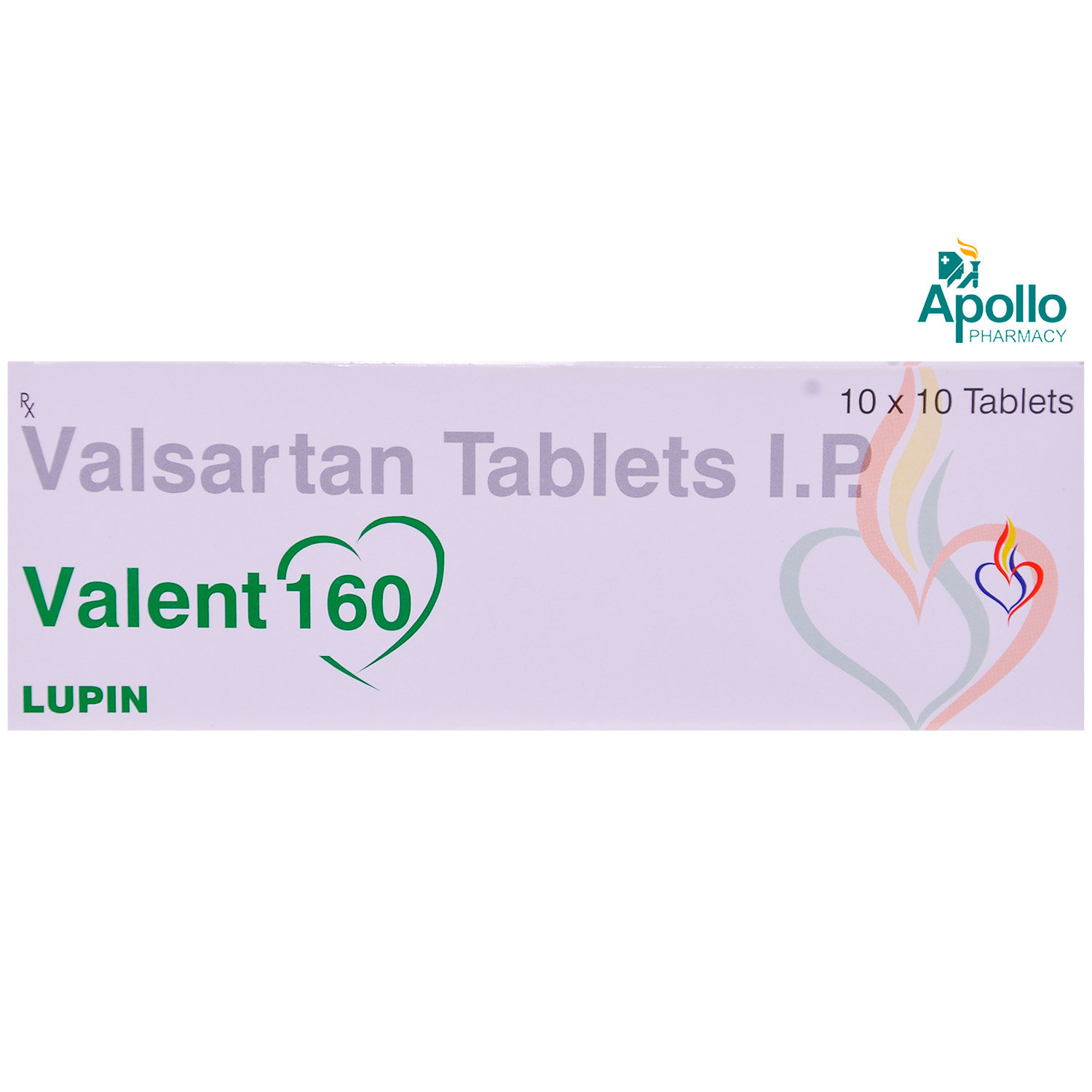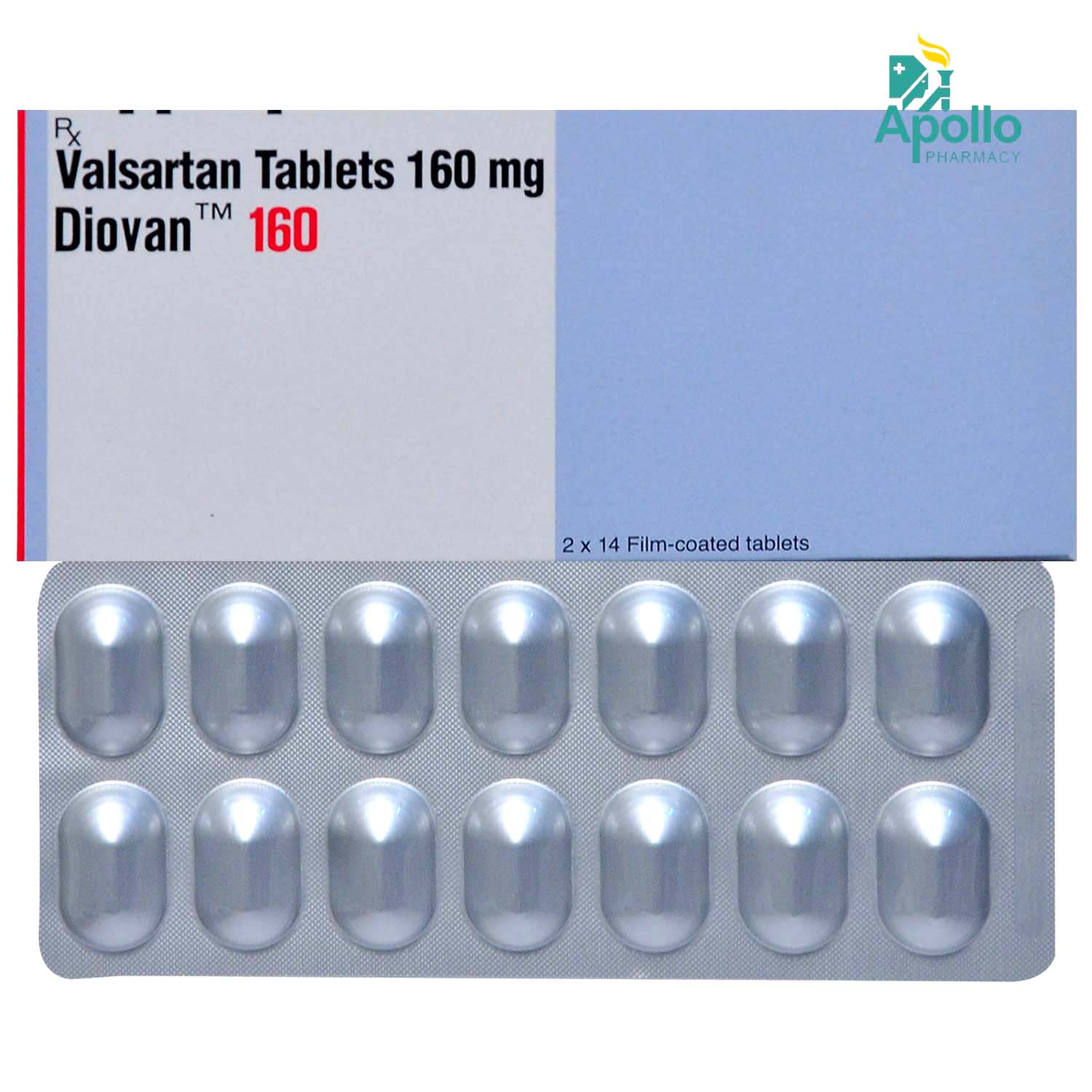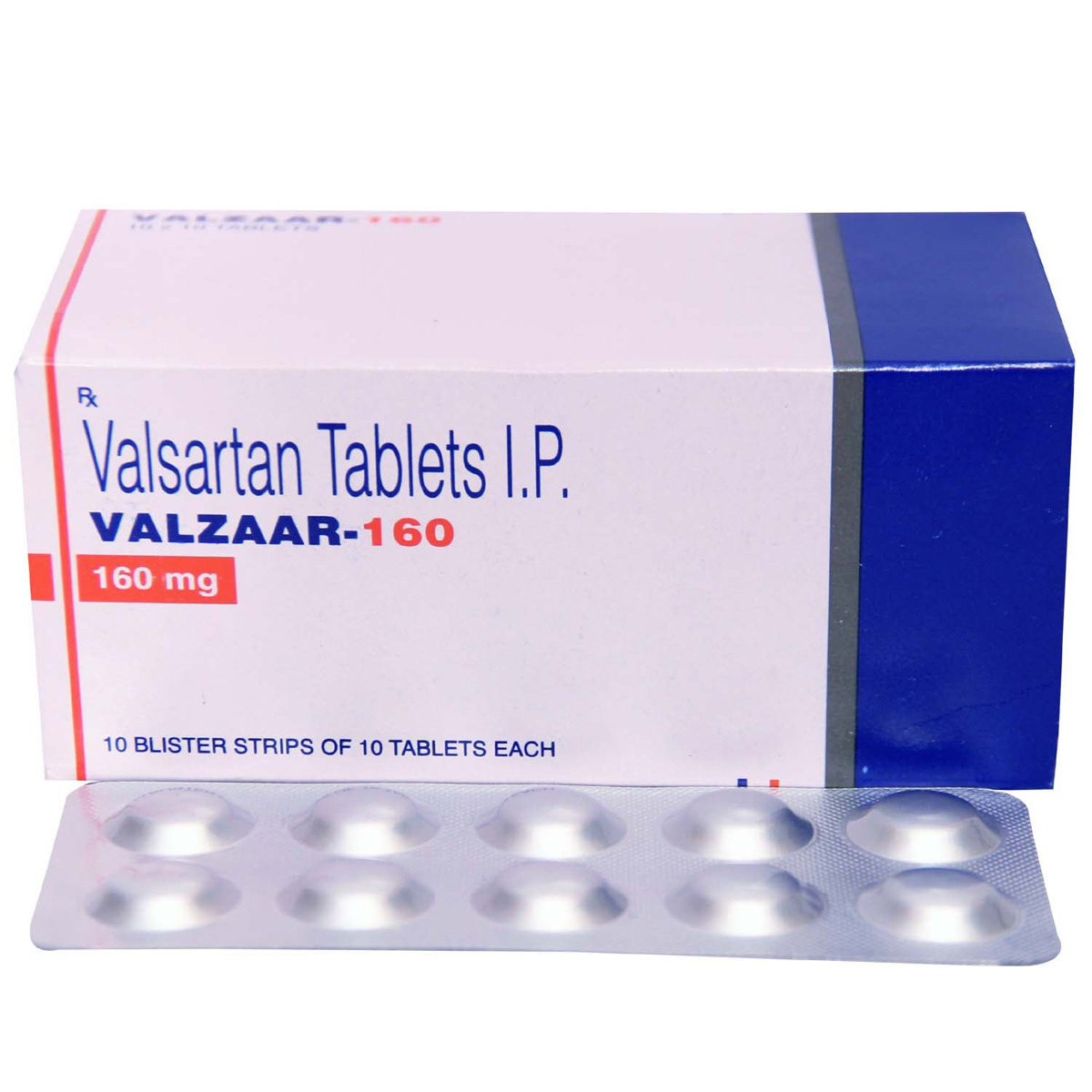Veldil 160mg Tablet
MRP ₹360
(Inclusive of all Taxes)
₹54.0 Cashback (15%)
Provide Delivery Location
Online payment accepted
 Prescription drug
Prescription drugWhats That
About Veldil 160mg Tablet
Veldil 160mg Tablet belongs to the group of anti-hypertensive medicines called angiotensin receptor II antagonist used to treat hypertension (high blood pressure). Additionally, Veldil 160mg Tablet is used to treat heart failure and prevention of heart attack. The blood exerts increased pressure on the walls of blood vessels leading to high blood pressure. Heart failure occurs when the heart cannot pump sufficient blood to the remaining parts of the body. A heart attack occurs due to the blockage of blood flow to the heart muscle.
Veldil 160mg Tablet contains ‘valsartan’ that works by blocking the effect of angiotensin II receptors which tighten the blood vessels, causing a rise in blood pressure. By blocking the effect of angiotensin II receptors, Veldil 160mg Tablet makes it easier for the heart to pump blood to all body parts by relaxing and widening the blood vessels. Thereby, Veldil 160mg Tablet helps in lowering the blood pressure to normal.
You are advised to take Veldil 160mg Tablet for as long as your doctor has prescribed it for you depending on your medical condition. In some cases, you may experience certain common side-effects such as dizziness, headache, abdominal pain, fatigue, diarrhoea, nausea, and vomiting. Most of these side-effects do not require medical attention and will resolve gradually over time. However, you are advised to talk to your doctor if you experience these side-effects persistently.
Try not to stop taking it on your own as it may cause sudden increase the blood pressure. Do not take Veldil 160mg Tablet if you are pregnant, as it may cause fetal harm. Consult your doctor before taking Veldil 160mg Tablet if you are breastfeeding. Veldil 160mg Tablet is not recommended for children below 6 years as efficacy and safety have not been established. Veldil 160mg Tablet may cause dizziness, so drive with caution. Avoid consuming alcohol as it might cause increased dizziness. Inform your doctor about all the medicines you are taking and your health condition to rule out any unpleasant side-effects.
Uses of Veldil 160mg Tablet
Directions for Use
Key Benefits
Veldil 160mg Tablet belongs to the group of anti-hypertensive medicines called angiotensin receptor II antagonists. Veldil 160mg Tablet is used to treat hypertension (high blood pressure), heart failure and lower death risk after a heart attack. Veldil 160mg Tablet works by blocking the effect of angiotensin II receptors which tighten the blood vessels, causing a rise in blood pressure. By blocking the effect of angiotensin II receptors, Veldil 160mg Tablet makes it easier for the heart to pump blood to all body parts by relaxing and widening the blood vessels. Thereby, Veldil 160mg Tablet helps in lowering the blood pressure to normal. Veldil 160mg Tablet reduces the risk of fatal and non-fatal cardiovascular events, primarily myocardial infarctions (heart attack) and strokes. Veldil 160mg Tablet significantly helps in reduced hospitalisation for heart failure. Veldil 160mg Tablet helps in reducing cardiovascular mortality following myocardial infarction (heart attack).
Storage
Drug Warnings
Do not take Veldil 160mg Tablet if you are allergic to any of its contents, if you have severe liver disease, diabetes, impaired kidney function, or if you are taking aliskiren. Inform your doctor if you have severe heart disease, aldosteronism (a disorder in which adrenal glands make too much of a hormone called aldosterone), dehydration, liver or kidney disease, if you are taking medicines containing potassium, if you have undergone kidney transplantation or dialysis. Do not take Veldil 160mg Tablet if you are pregnant, as it may cause fetal harm. Consult your doctor before taking Veldil 160mg Tablet if you are breastfeeding. Veldil 160mg Tablet is not recommended for children below 6 years as efficacy and safety have not been established. Veldil 160mg Tablet may cause dizziness, so drive with caution. Avoid consuming alcohol as it might cause increased dizziness. Rise slowly from lying/sitting position as Veldil 160mg Tablet may cause dizziness (orthostatic hypotension).
Diet & Lifestyle Advise
- You are advised to consume low salt and low-fat diet while taking Veldil 160mg Tablet.
- Regular exercise is also recommended to complement treatment with Veldil 160mg Tablet.
- Eat a diet rich in whole grains, vegetables, fruits.
- Avoid smoking and alcohol consumption.
- Maintain a healthy weight with proper diet and exercise.
- Managing stress with meditation, yoga, massage would also help in treating high blood pressure.
- Avoid consuming food rich in potassium such as banana, broccoli, almonds, avocado, and potassium supplements.
Side Effects of Veldil 160mg Tablet
- Dizziness
- Nausea
- Vomiting
- Headache
- Abdominal pain
- Fatigue
- Diarrhoea
Habit Forming
Therapeutic Class
All Substitutes & Brand Comparisons
RX
Out of StockValembic 160mg Tablet 10's
Alembic Pharmaceuticals Ltd
₹141.5
(₹12.74 per unit)
60% CHEAPERRX
Out of StockValsartil 160mg Tablet
₹160
(₹14.4 per unit)
55% CHEAPERRX
Valent 160 Tablet 10's
Lupin Ltd
₹318.5
(₹28.67 per unit)
11% CHEAPER
Author Details
We provide you with authentic, trustworthy and relevant information
FAQs
Drug-Drug Interactions Checker List
- ASPIRIN
- IBUPROFEN
- NAPROXEN
- CELECOXIB
- ETORICOXIB
- DICLOFENAC
- LITHIUM
- CYCLOSPORINE
- RIFAMPICIN
- RITONAVIR
- ALISKIREN
- ENALAPRIL
- CAPTOPRIL
- LISINOPRIL
- RAMIPRIL
- HEPARIN
- SPIRONOLACTONE
Special Advise
- Regular monitoring of blood pressure levels, kidney function and electrolyte levels while taking Veldil 160mg Tablet is advised.
- Veldil 160mg Tablet may increase your potassium levels. Before using potassium supplements or salt substitutes that contain potassium, consult your doctor or pharmacist.
Disease/Condition Glossary
Hypertension: It is a condition in which the blood exerts increased pressure on the walls of blood vessels leading to hypertension. This condition can lead to hardened arteries (blood vessels), decreasing the blood and oxygen flow to the heart. Raised blood pressure can cause chest pain (angina) and heart attack (when the blood supply to the heart is blocked). Additionally, high blood pressure also causes brain damage (stroke) and kidney failure. Symptoms of high blood pressure include headache, dizziness, nose bleed, changes in vision, chest pain, weakness and dyspnoea (shortness of breath). However, most of the time, the signs and symptoms of hypertension are none.
Heart failure: Heart failure occurs when the heart cannot pump sufficient blood to the body's remaining parts. Symptoms include fatigue, shortness of breath, rapid heartbeat, and swollen legs.
Myocardial infarction: Myocardial infarction, also known as heart attack, is a condition in which blood flow to the heart muscle is blocked. The blockade usually occurs due to the build-up of fat/cholesterol in the coronary artery. Symptoms include pain or tightness in the chest, neck, arms or back, weakness, lightheadedness, anxiety and abnormal heartbeat.

Have a query?
Alcohol
Safe if prescribed
Avoid consuming alcohol while taking Veldil 160mg Tablet as it may cause increased dizziness.
Pregnancy
Consult your doctor
Veldil 160mg Tablet belongs to pregnancy category D. Avoid taking Veldil 160mg Tablet if you are pregnant or think you might be pregnant, as Veldil 160mg Tablet can cause harm to the developing fetus.
Breast Feeding
Consult your doctor
It is unknown if Veldil 160mg Tablet passes into breastmilk. Consult your doctor if you are breastfeeding; your doctor will decide whether Veldil 160mg Tablet can be taken by breastfeeding mothers or not.
Driving
Safe if prescribed
Veldil 160mg Tablet may cause dizziness, do not drive or operate heavy machinery if you feel dizzy.
Liver
Consult your doctor
Dose adjustment may be needed. Veldil 160mg Tablet should be used with caution in patients with liver impairment/liver disease. Please consult your doctor if you have liver problems or any concerns regarding this.
Kidney
Consult your doctor
Dose adjustment may be needed. Veldil 160mg Tablet should be used with caution in patients with kidney impairment/kidney disease. Please consult your doctor if you have kidney problems or any concerns regarding this.
Children
Safe if prescribed
Veldil 160mg Tablet is not recommended for children below 6 years as efficacy and safety have not been established.









_0.jpg?tr=q-85)

